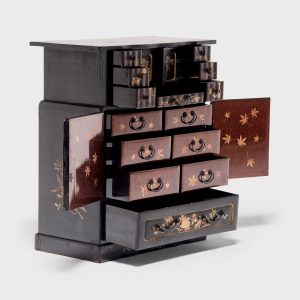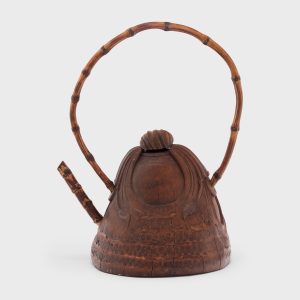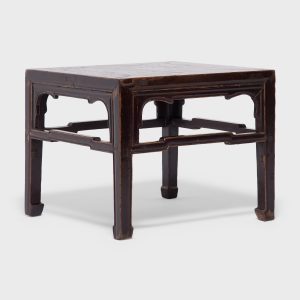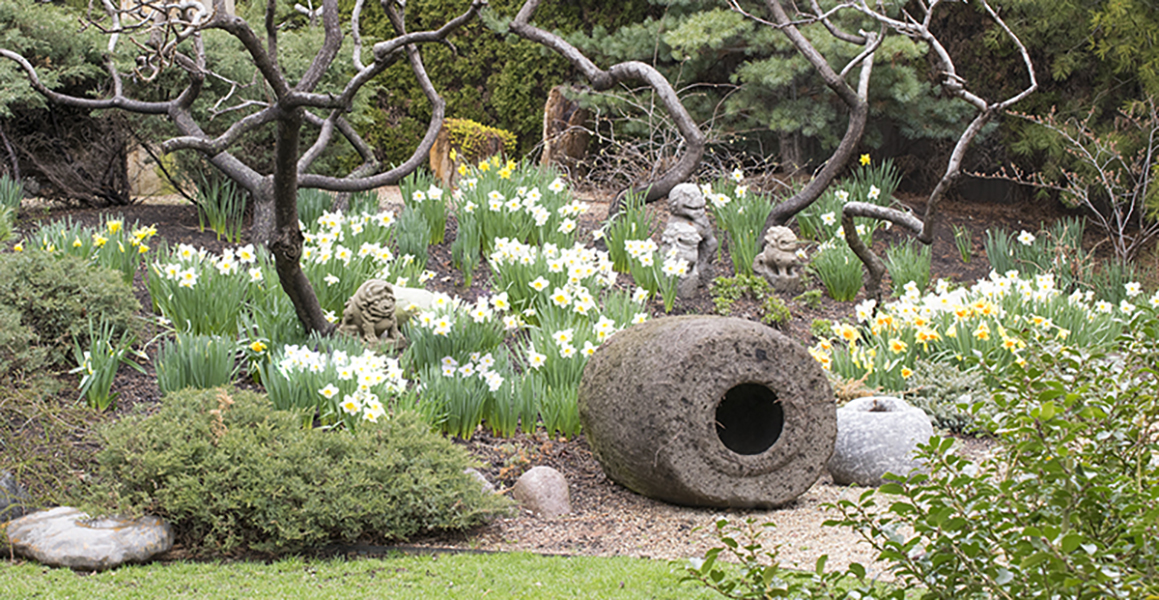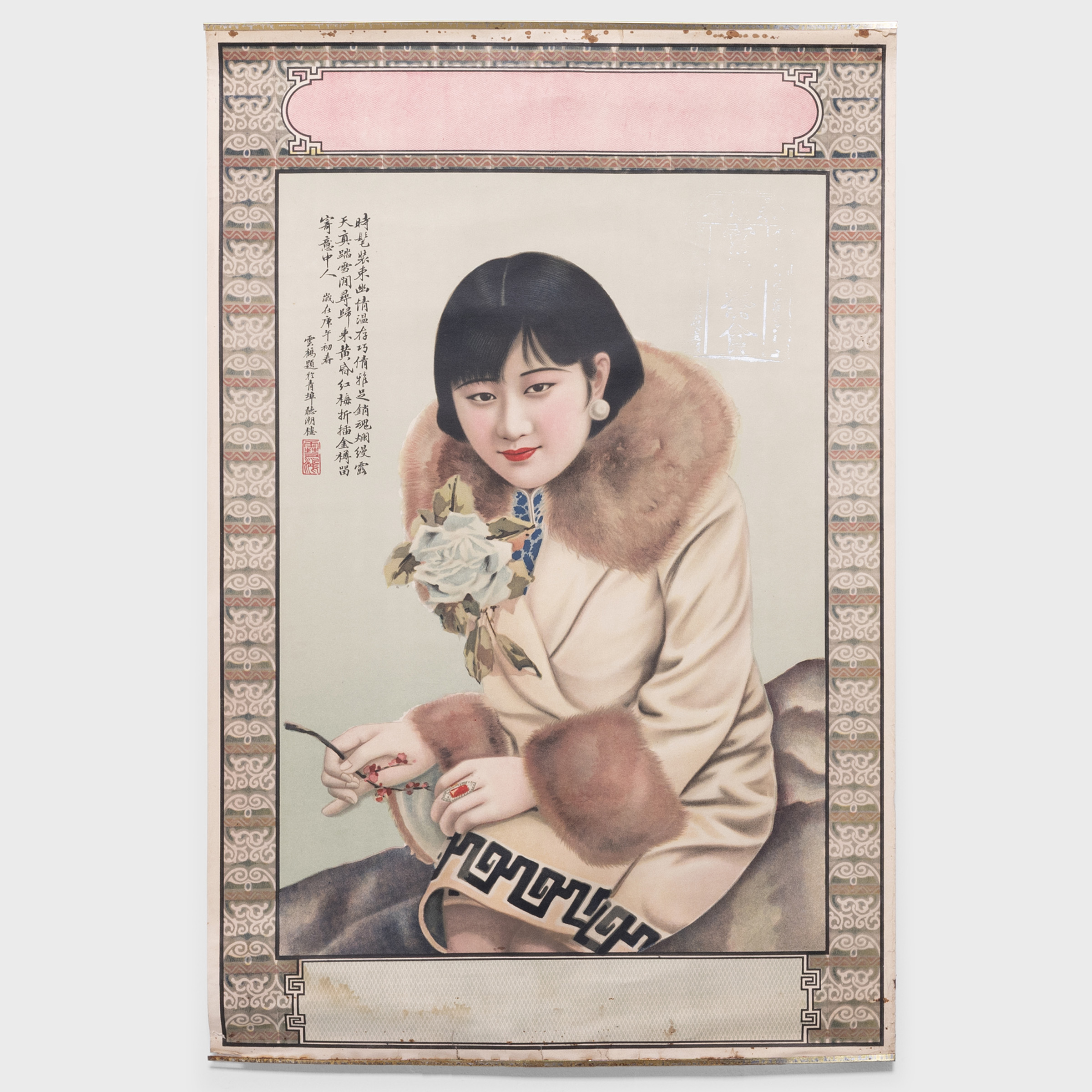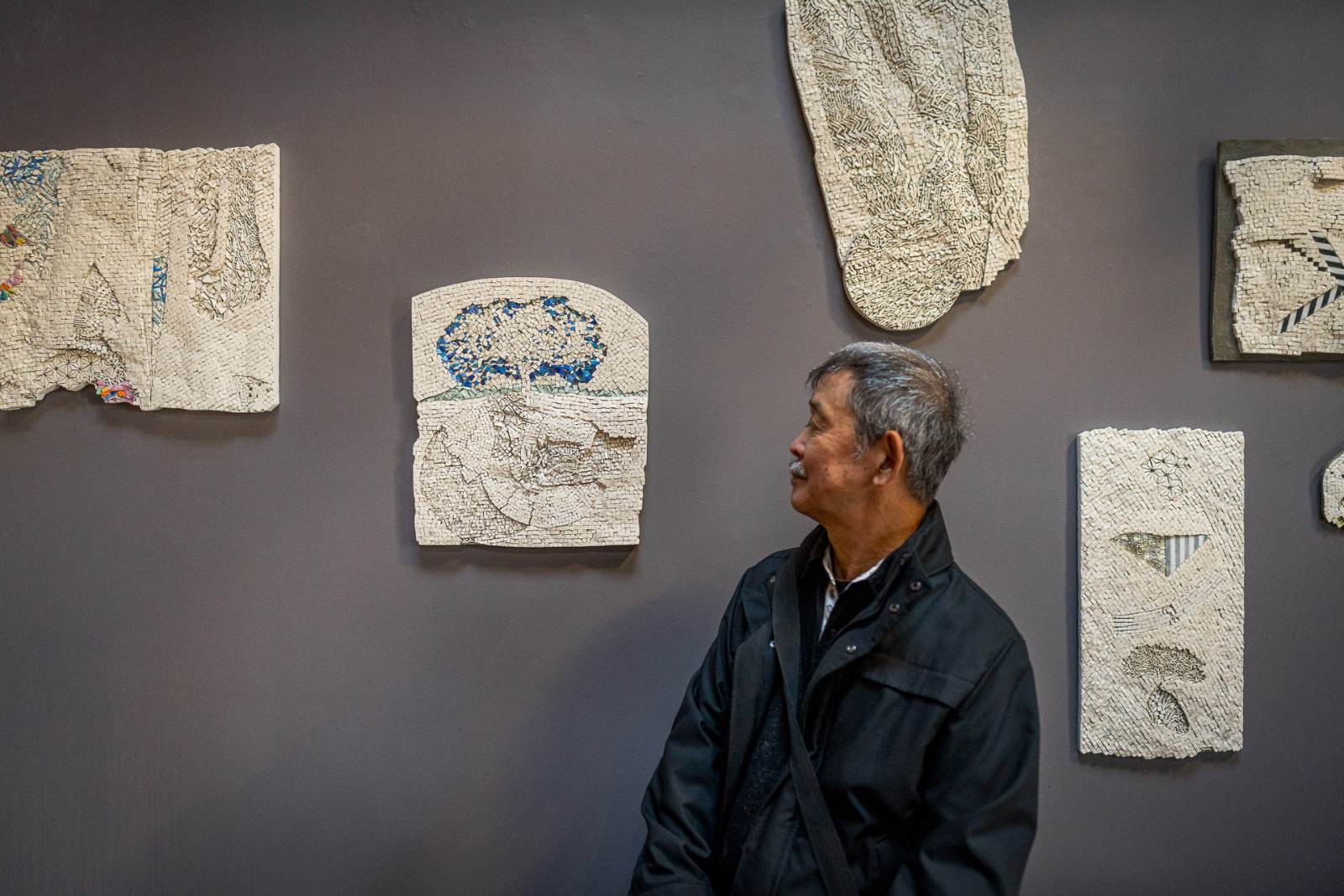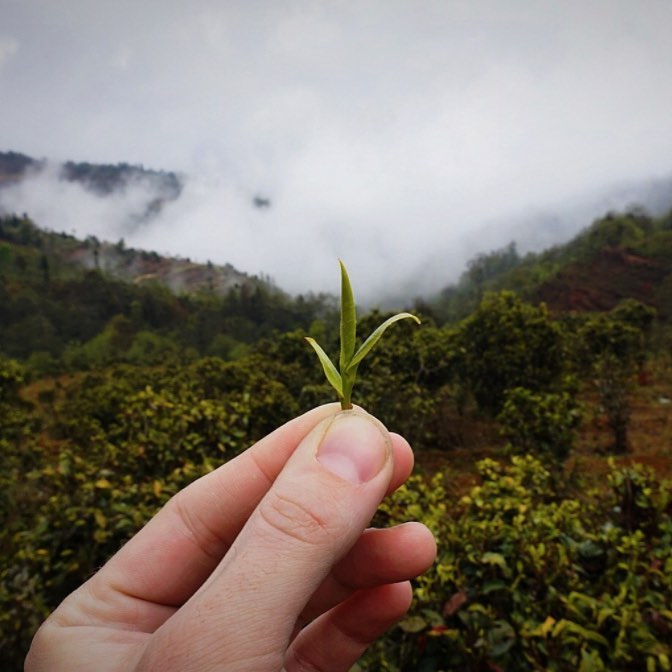
Red Alert: Spirit Tea
Coffee is a drink that seems tailor made for the rush of modern life — whether it’s a quick shot of powerful espresso, or a latte to go. Tea, on the other hand, does not care to be rushed. Tea asks for more: a kettle, some patience and time. Taylor Cowan and Jordan Scherer, co-founders of Spirit Tea, believe that tea is all about anticipation. We met Cowan and Scherer during a PAGODA RED spring vendors event, and were immediately taken by their passion and commitment.
The Art of Slowing Down
Through careful sourcing, planning, preserving and packaging, the pair have done everything they can to avoid speeding up the process.
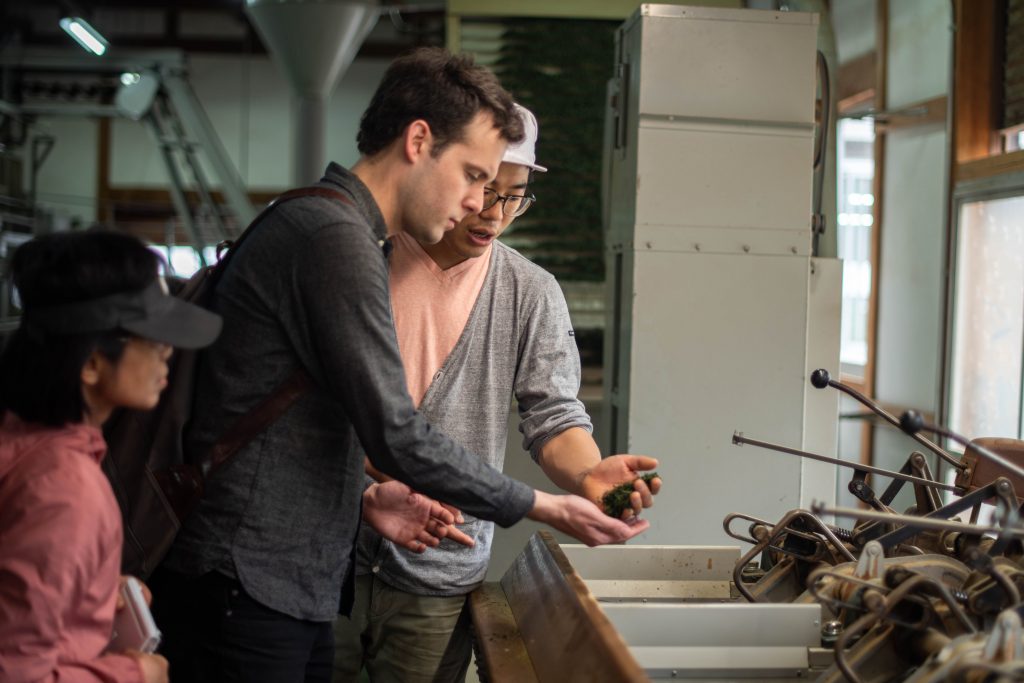
Taylor in Uji, Japan in Mr. Yuki’s tea production facility.
“We wanted to celebrate the fact that there is this 6,000-year ritual of tea,” says Cowan. “All of our teas are in honor of that and about that — leaves harvested by dedicated people on real farms.”
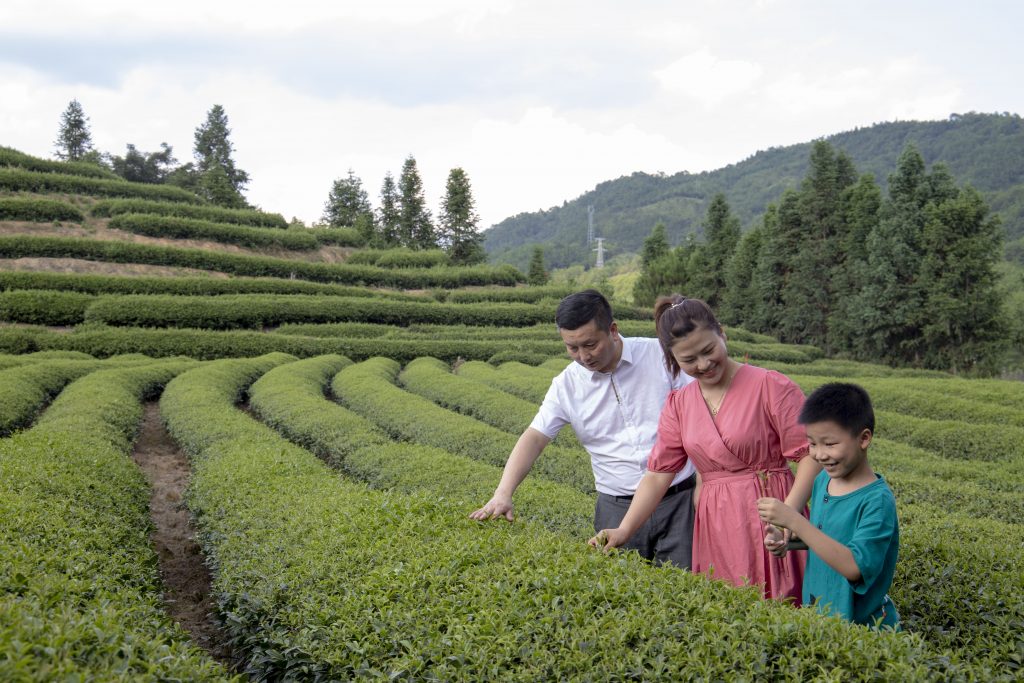
Spirit Tea producer partners, the Wen Family, in Wuyishan, Fujian.
A Taste For Tradition
Specializing in time-honored loose-leaf teas, the Chicago-based brand has been quietly transforming perceptions about the drink. To start, they are passionate about what Spirit Tea’s blends do not include. Namely, florals and fruit flavorings — the extras that Cohen explains are often added to appeal to American palates. As industry veterans, the business partners were well aware of large companies’ tendency to augment flavors.
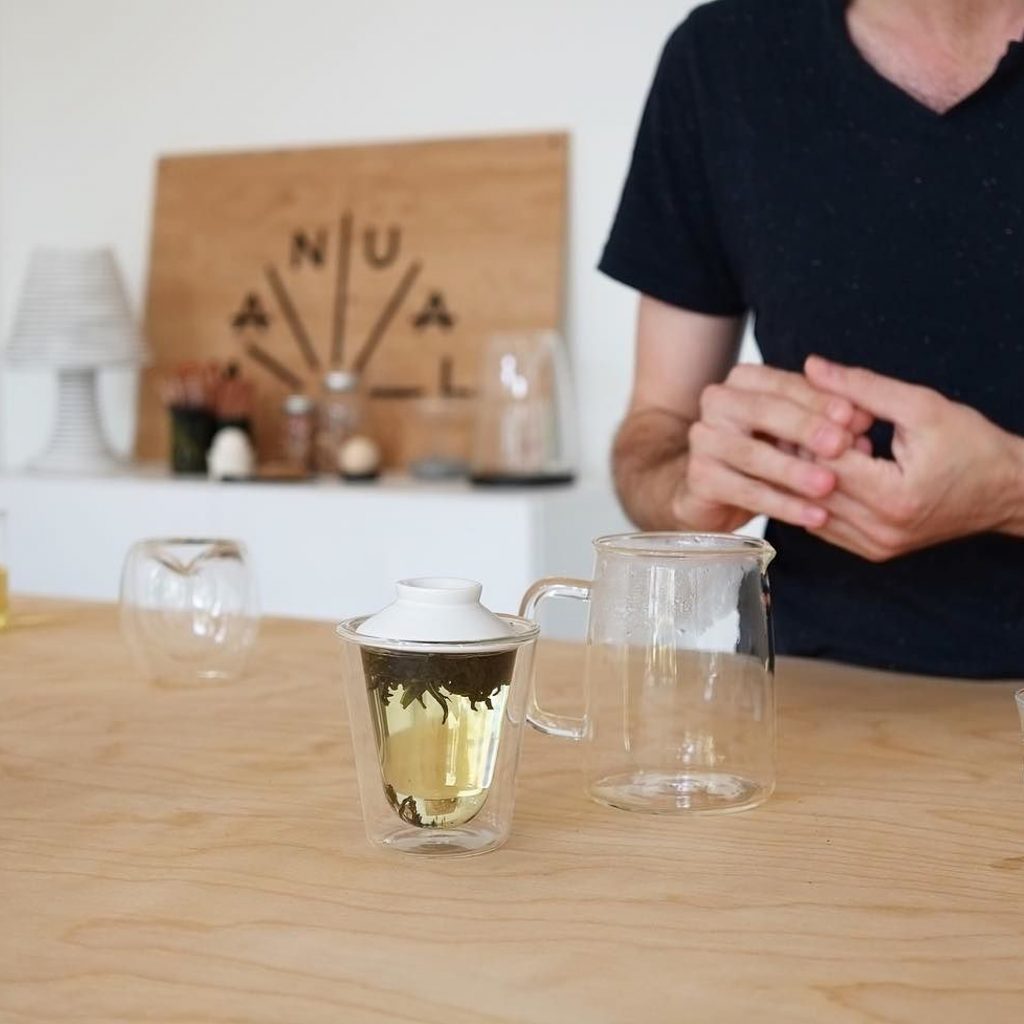
Taylor with the Manual Tea Maker no. 1, the teapot Spirit co-designed and Kickstarted with Manual Goods.
A Sensitive Approach to Sourcing
The pair launched their brand in 2015, bootstrapping the operation and packaging teas by hand. Tea leaves are sourced from several regions in Southwest China, Tawian and Japan, and harvested by individual farms without the use of pesticides. The leaves are baked to produce certain blends, while others are air dried. Meanwhile, all ingredients are seasonal and are picked with an eye toward peak freshness.
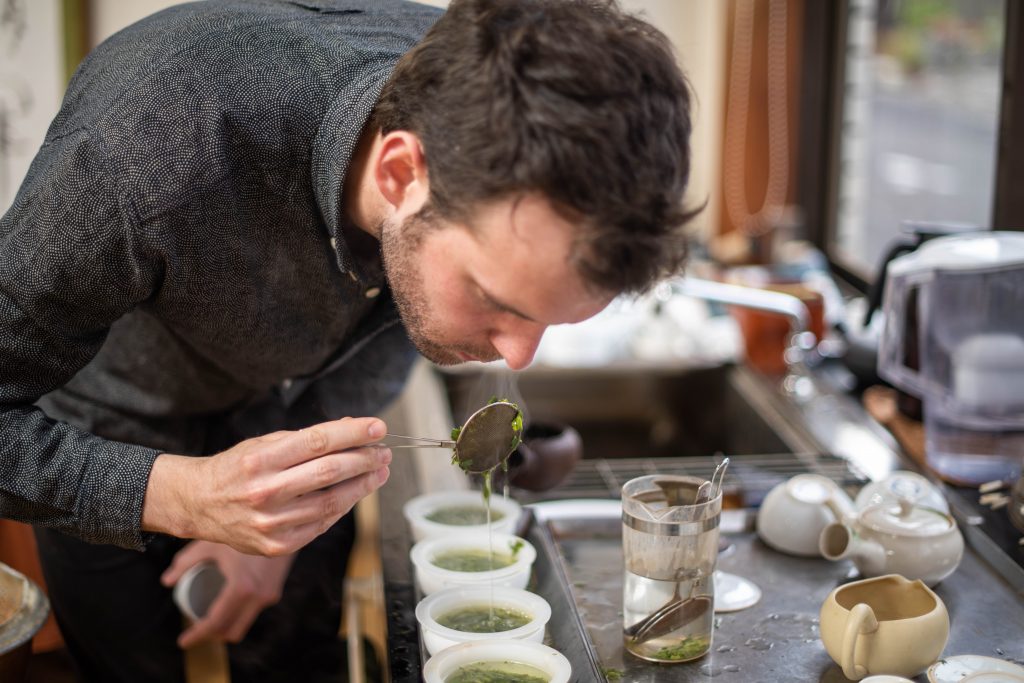
Smelling oxidizing tea leaves.
Developing relationships with farms took time, and Cowan describes each engagement as personal, not transactional.
“A lot of the conversation has been convincing producers that it’s worth it to ship their tea 2,000 miles away, and that someone is going to appreciate it.”
Many of the company’s farming partners have never before exported their wares to the United States.
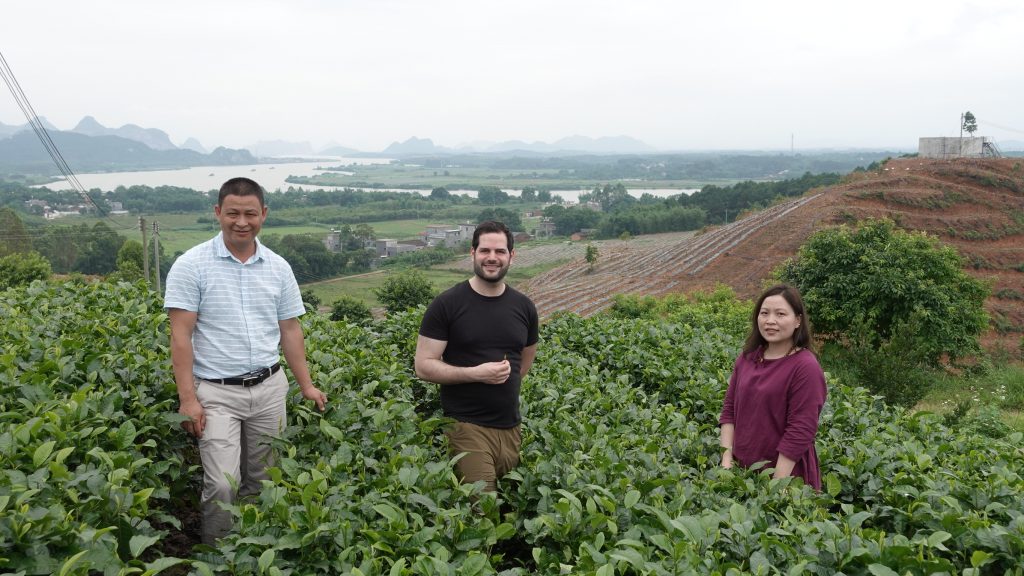
The company’s Japanese sourcer, Ryan, in Shizuoka with two partner producers.
A Growing Movement
At home in Chicago, the company’s patience has been rewarded. Spirit has a loyal following, who seek them out at shops like Gaslight Coffee in Logan Square, Big Shoulders Coffee and City Grounds Coffee in Lincoln Park. What’s more, the company has expanded to the Twin Cities, Kansas City and parts of Colorado. According to Cowan, the biggest challenge has been educating retail partners on how premium tea should taste.
“Tea can be so complex, there are more identifiable flavors in tea than in wine,” he says, and on its perceived value. A $4 or $6 cup of tea feels extravagant to most consumers, but appreciation for high quality tea is taking hold. “It’s amazing how much the market has grown into this tea,” says Cowan.

Capturing the quiet, pristine garden atop the Ali Shan mountain range in Taiwan.
Adding to that sense of time evanesced, many of Spirit’s blends are available for only a short time, as they’re seasonally produced in small batches. As consumers become ever more invested in learning about the origin of the things they buy, Spirit Tea’s mission seems to be resonating.
“For wine drinkers, they seek the best grape varieties; serious coffee drinkers, they want to know who the farmer in Nicaragua is — and the same is happening with tea. Knowing the source, and knowing that our tea tastes of nothing but the soil, the weather and the sun is so special. It’s a taste that’s immediate,” says Cowan.
The Ambassadors of Exquisite Tea
Both Cowan and Scherer aim to be more than just tea purveyors. They want their company to reflect the rich, fascinating history of tea. To that end, Scherer has hosted guided tea meditations — inviting people to become more aware and present, and honoring the rituals of serving and drinking tea. While every culture has their own customs — the founders consider themselves cultural ambassadors, welcoming people to the greater joys of tea drinking.
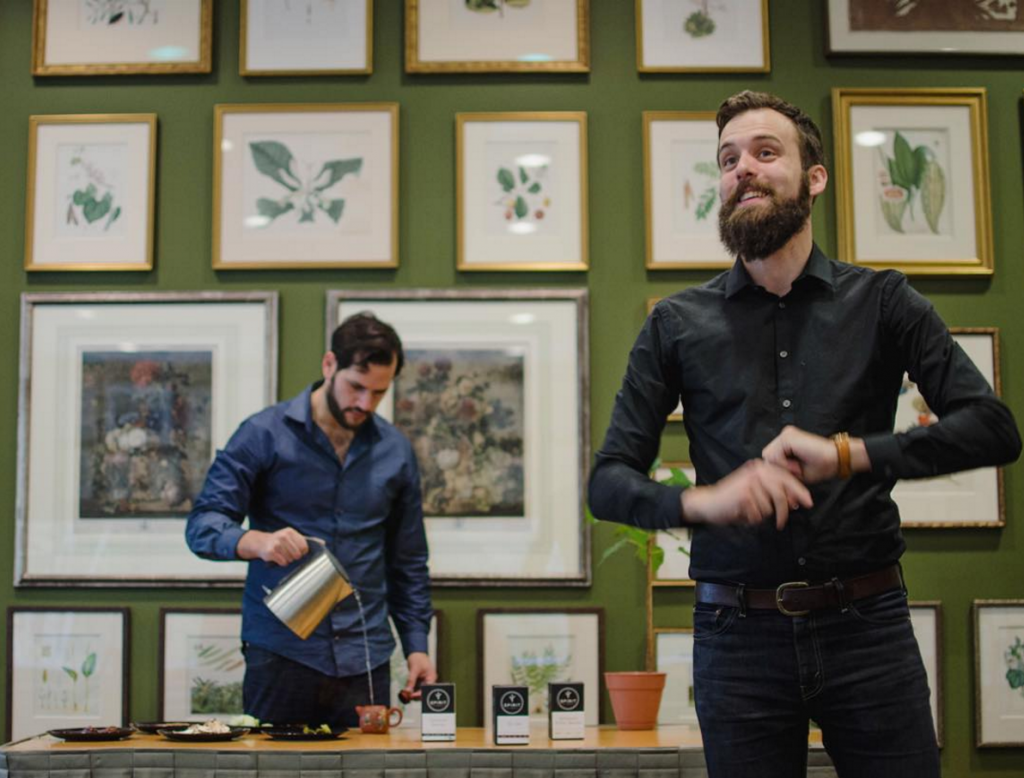
The founders teaching a class on tea at the Chicago Botanic Garden.
“One of the reasons Jordan and I fell in love with tea is because it asks you to really slow down,” says Cowan. It’s about taking the time and space to make tea. Finding that ritual can really can change your life.”
To learn more, visit Spirit Tea. All images courtesy of Spirit Tea.

Shop the Story
- Japanese Gilt Black Lacquer Tea Chest
- Bamboo Cloth Teapot
- Black Lacquer Feng Deng Table

Are you an architect or designer with a story to tell?
Register with us to receive exclusive discounts and benefits, plus free shipping on your first order. Trade professionals are also eligible for collaborative features on our blog and social media channels. Please note that trade registration with PAGODA RED is only open to interior design and architecture professionals.
